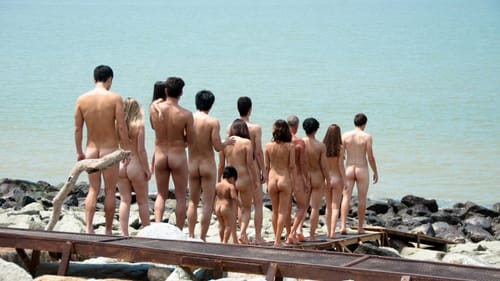Stay in the Loop
BSR publishes on a weekly schedule, with an email newsletter every Wednesday and Thursday morning. There’s no paywall, and subscribing is always free.
Into the great beyond
qFlix film festival presents 'Voyage,' by Scud (Danny Cheng Wan-Cheung)

Throughout its history, queer cinema has been at the forefront of exploring the concept of taboo within visual culture, investigating what makes some things acceptable in mainstream society and others not. Danny Cheng Wan-Cheung’s 2013 film Voyage, screening at the qFlix Philadelphia festival, pushes this trend in a powerful new direction through its exploration of suicide, depression, and mental illness.
Voyage tells the story of Ryo (Ryo van Kooten), a queer, biracial Dutch-Japanese psychiatrist who embarks on a solo sea voyage through Southeast Asia. Consumed by his own depression, Ryo records the various misfortunes of past patients in a memoir while deciding whether or not to take his own life.
Parts of the whole
The film is composed of a series of vignettes whose subjects have no relation to each other beyond Ryo’s supposed connection to them (which in some cases seems suspect). All the individuals involved either committed suicide or experienced an unfortunate accident resulting in their own demise or the premature death of a close relative.
At its core, Voyage is about navigating life and interpersonal relationships amid depression that, at least in the context of this film, often ends in suicide. In its longer segments, we see the impact of suicide, and an epilogue shows what happens to those left behind.
Co-written and directed by Hong Kong native Wan-Cheung (better known as Scud), Voyage is the fifth feature from a filmmaker known for controversy within the fairly conservative Hong Kong cinema world. The film makes it clear that suicide and depression are very personal for the director.
In an interview with Screen Daily, Scud credits his idea for the film as originating from his own thoughts about suicide. A perfect example comes in a vignette during which a mother tells her daughter, “You know, for some of us, the feeling of pleasure is like the mist in the morning, and that of sorrow, the ocean in the evening.”

Global reach
Stylistically, Scud composes each shot with the intentionality and poise of a master painter, beautifully captured in expansive widescreen views. While his technique differs between vignettes, he tends to favor minimal dialogue — showing, instead of telling, his audience.
Voyage is billed as a Hong Kong film, but its scope is better described as an international co-production. The ambitious project involved location shoots in Mongolia, the Netherlands, Malaysia, Australia, and Germany. For this reason, there are major tonal differences between vignettes — deliberately written in some cases, but also rooted in divergent attitudes toward death across cultures.
That said, in this predominantly English-language film, a weak point is the stark contrast in acting quality among performers whose first language is not English. The film also lacks subtitles for its Dutch and Mongolian-language scenes, which is confusing but works well as a narrative device to help the audience relate to characters who are also left guessing at meaning within words they cannot understand.
For those of us who suffer from depression or have relationships with others who do, there is a sort of catharsis in watching a film that so accurately depicts the far depths of despair in such a realistic and compassionate way. Sadly, because Voyage is being screened at a LGBTQ+ film festival, there will be audiences who would benefit from its universal themes but, given their own biases, won’t see it.
What, When, Where
Voyage. Written and directed by Scud (Danny Cheng Wan-Cheung). March 23, 2018, at the Plays & Players Theatre, 1714 Delancey Street, Philadelphia. (215) 735-0630 or qflixphilly.com.
Sign up for our newsletter
All of the week's new articles, all in one place. Sign up for the free weekly BSR newsletters, and don't miss a conversation.

 Rob Buscher
Rob Buscher